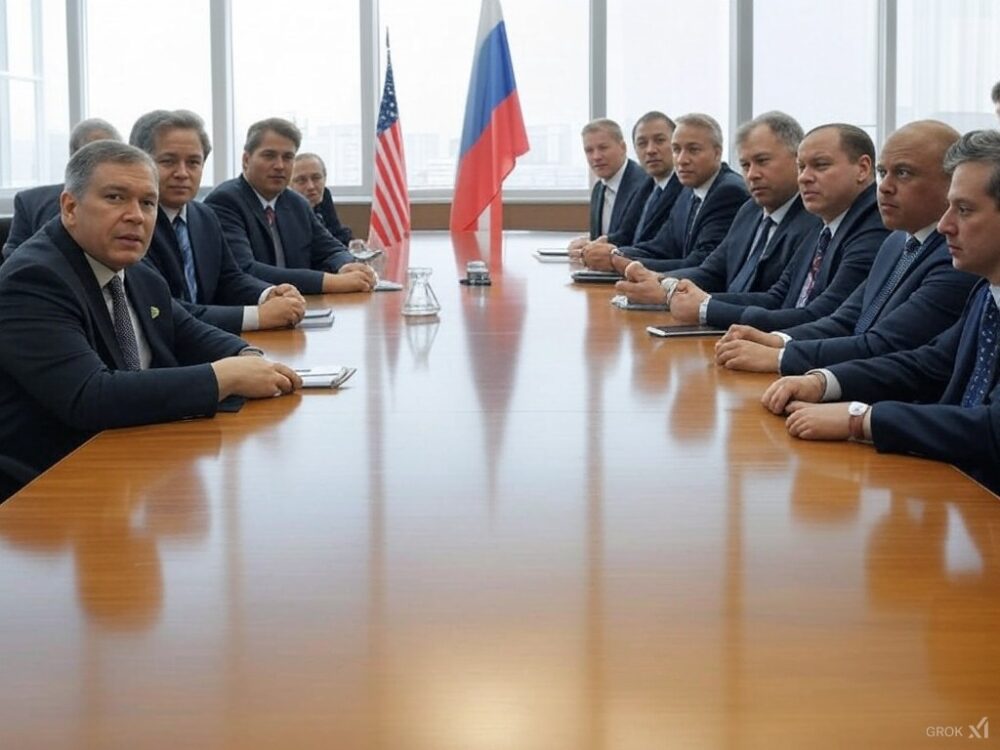
Negotiation stands as a cornerstone in the resolution of disputes, offering a platform where conflicting parties can collaboratively seek mutually beneficial solutions. This process not only addresses the immediate issues at hand but also fosters understanding and preserves relationships, which is particularly vital in both personal and professional contexts.
The Imperative of Inclusive Negotiation
For negotiation to be effective, it is essential that all parties directly involved in the dispute participate in the dialogue. Excluding any stakeholder can lead to agreements that lack legitimacy, fail to address the concerns of all involved, and may ultimately be unsustainable. In the context of international conflicts, such as the ongoing war in Ukraine, the inclusion of all affected nations is crucial to achieving a lasting peace.
The Ukraine Conflict: Exclusion from Negotiations
Recent developments have seen high-level talks between the United States and Russia aimed at resolving the war in Ukraine. Notably, these discussions have occurred without the direct involvement of Ukrainian officials. Meetings held in Saudi Arabia between U.S. Secretary of State Marco Rubio, National Security Adviser Mike Waltz, and Russian Foreign Minister Sergei Lavrov have sparked concerns among European allies and Ukraine itself. Ukrainian President Volodymyr Zelenskyy has expressed that Ukraine would not accept any outcome from talks in which Kyiv is not involved, emphasizing the necessity of Ukraine’s participation in negotiations concerning its own sovereignty and future.
European Allies: Marginalization in the Peace Process
The exclusion extends beyond Ukraine to its European allies, who have been sidelined in these critical discussions. Former NATO official Stefanie Babst has highlighted a growing rift, noting that Europe’s trust in the U.S. has diminished due to President Donald Trump’s perceived alignment with Russia. This sentiment underscores the importance of a unified and inclusive approach to negotiations, where all stakeholders have a voice in the process.
Challenges in Achieving Effective Dispute Resolution
The absence of key parties in negotiation processes poses significant challenges to effective dispute resolution. Agreements reached without the input and consent of all stakeholders are prone to failure, as they may not adequately address the interests and concerns of those excluded. In the case of Ukraine, any peace agreement that does not involve Ukrainian representatives risks being perceived as illegitimate and may not be upheld by the Ukrainian populace or government.
The Path Forward: Inclusive and Comprehensive Negotiations
To move towards a sustainable resolution of the conflict in Ukraine, it is imperative that all affected parties, including Ukraine and its European allies, are actively involved in the negotiation process. This inclusive approach ensures that the resulting agreements are comprehensive, address the core issues at stake, and are more likely to be respected and implemented by all parties. Furthermore, involving all stakeholders fosters a sense of ownership and commitment to the peace process, which is essential for long-term stability.
In conclusion, the principle that all parties to a dispute must engage in negotiations is fundamental to achieving effective and lasting resolutions. The current exclusion of Ukraine and its European allies from critical peace talks undermines the legitimacy and potential success of any agreements reached. Therefore, a shift towards inclusive negotiations is not only advisable but necessary for the attainment of a just and enduring peace in the region.
Michael J. Tyler